Selected Plants of Navajo Rangelands
Thistle, musk
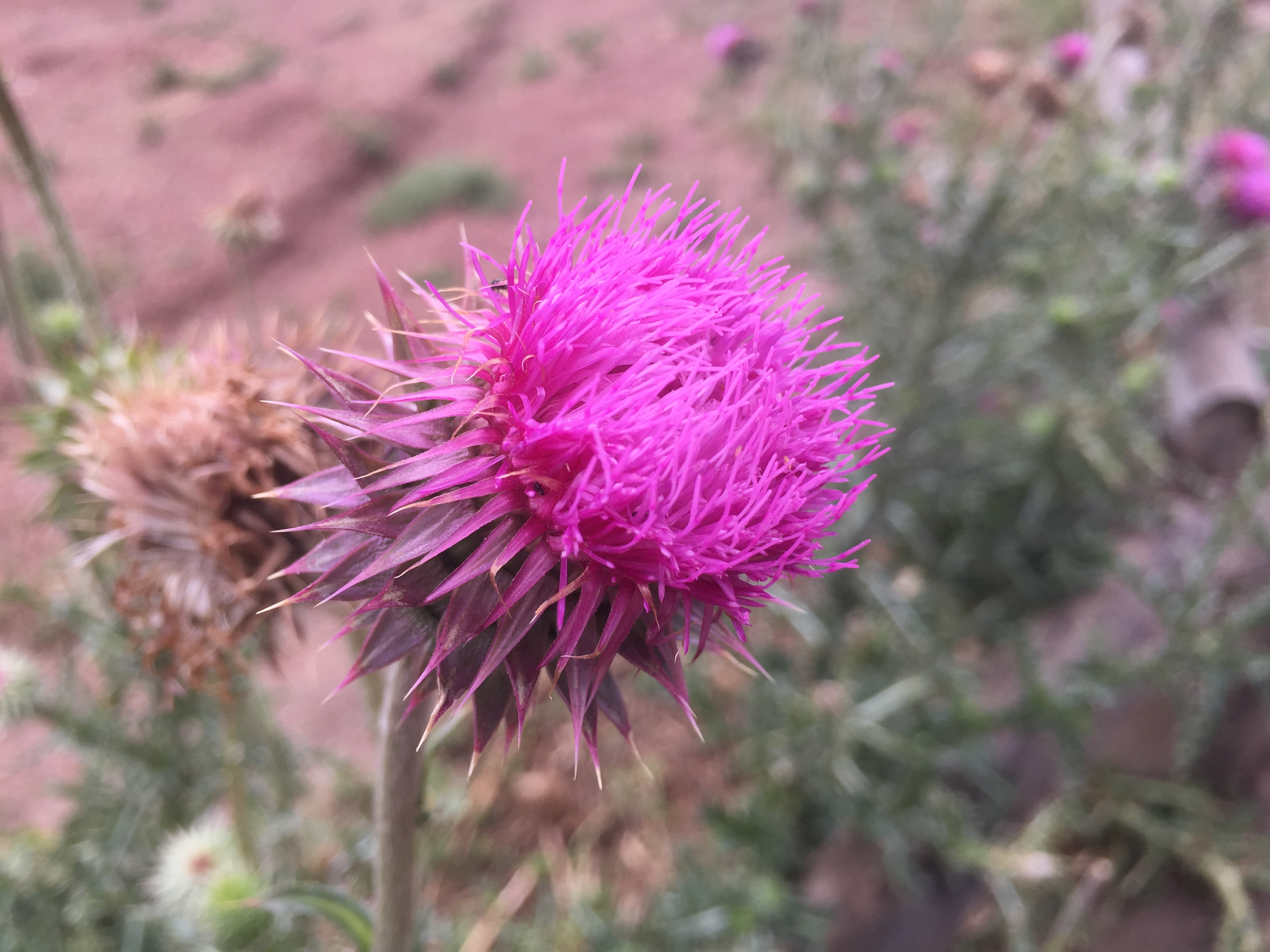
Musk thistle is a colony-forming weed, growing up to six feet tall, with a spiny stem and long, fleshy taproot. Musk thistle reproduces solely by seed. Musk thistle invades pasture, range, and forestlands. It is often found on roadsides, waste areas, ditch banks, stream banks and in grain fields. It spreads rapidly, forming extremely dense stands that crowd out desirable forage. Musk thistle is shade intolerant. It is adapted to a broad range of soils, but establishment is best on bare soil. Musk thistle is tolerant of saline and acidic soils and can be a noxious weed.
Chemical control is effective. An introduced biological control agent, the musk thistle weevil, feeds on the seeds and can limit the spread of this plant, but will not eliminate it. Musk thistle is not palatable to livestock because of its long sharp spines.
Musk thistle does provide a source of nectar for high quality honey.
*Description based on description at Utah State University's Range Plants of Utah.
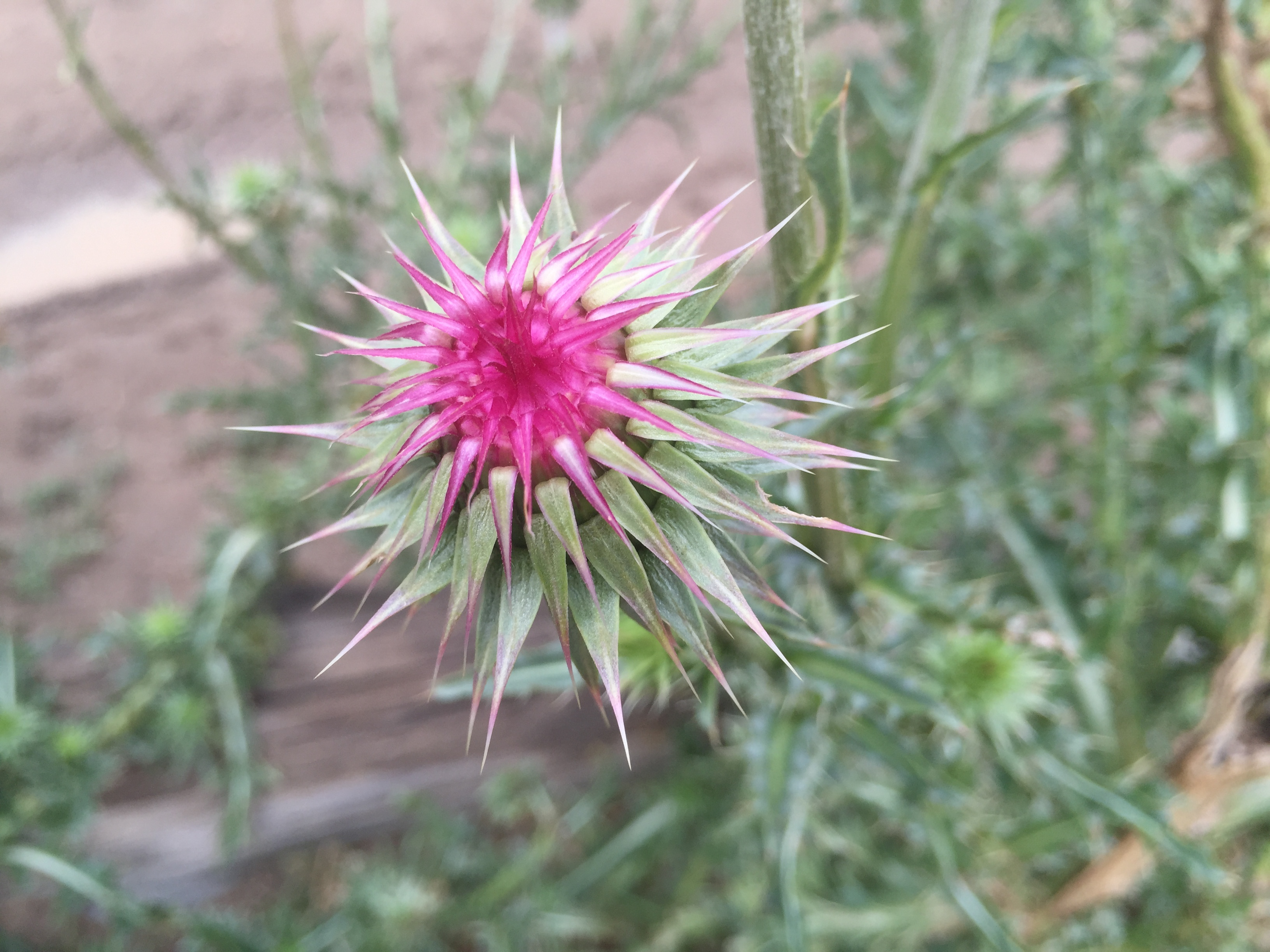
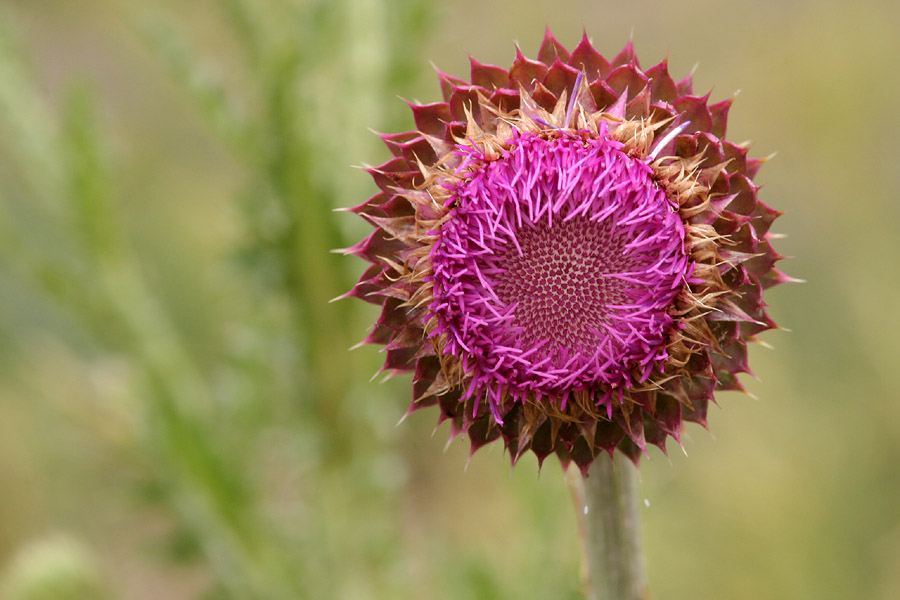
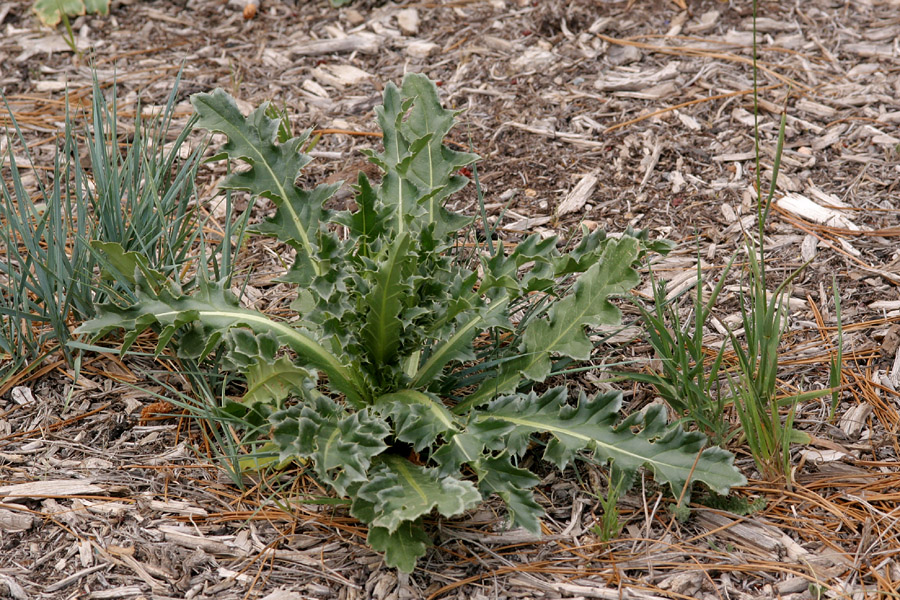
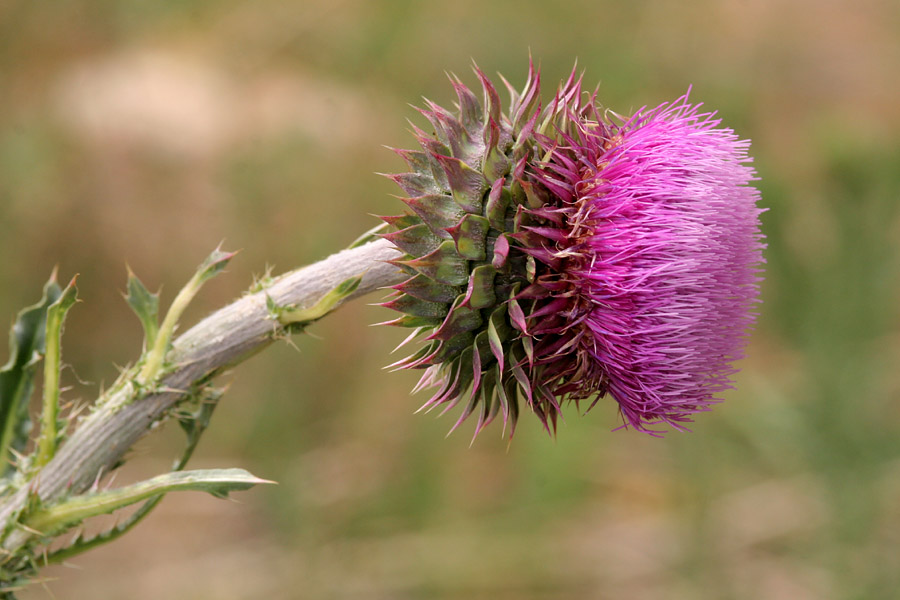
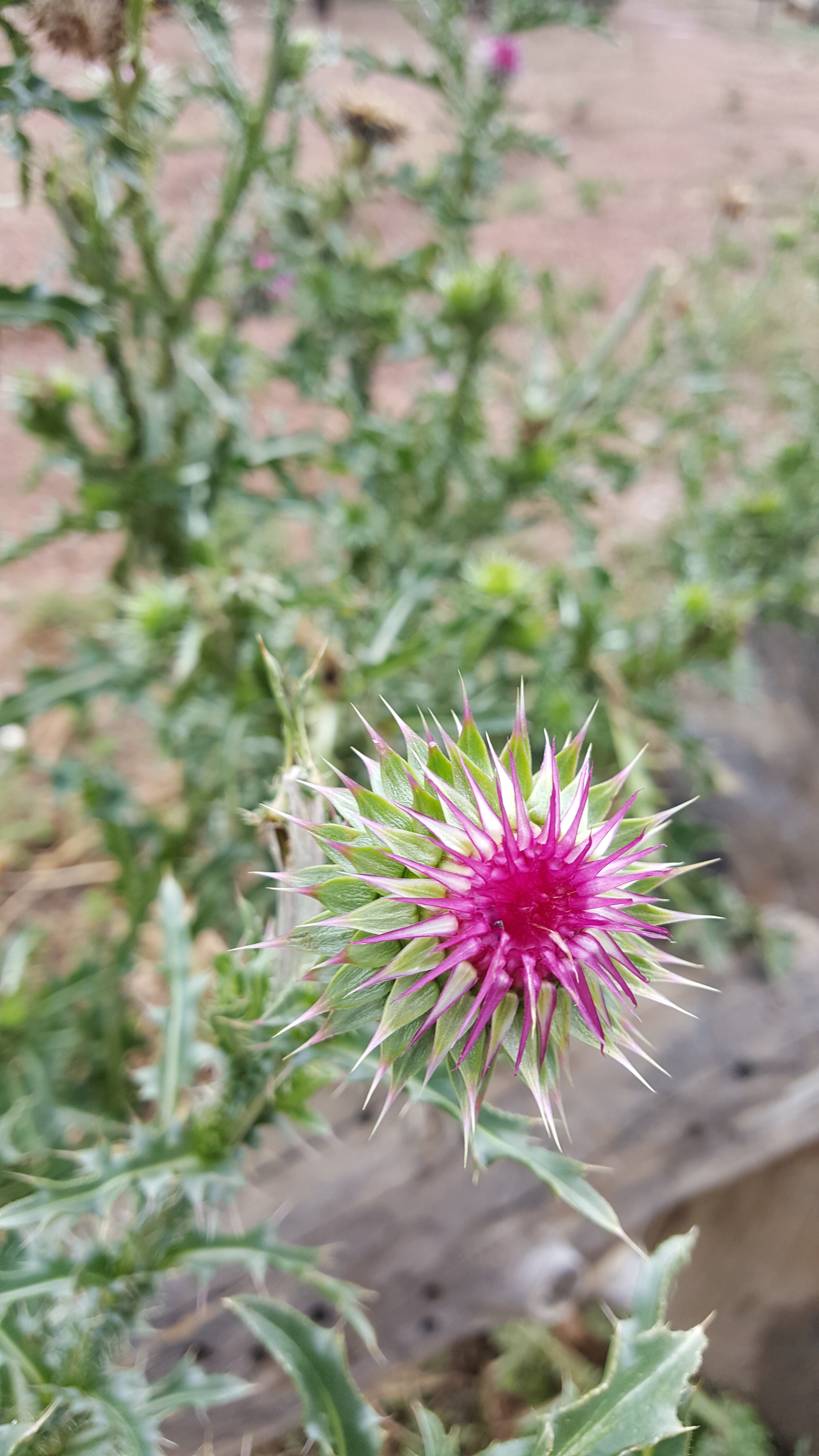
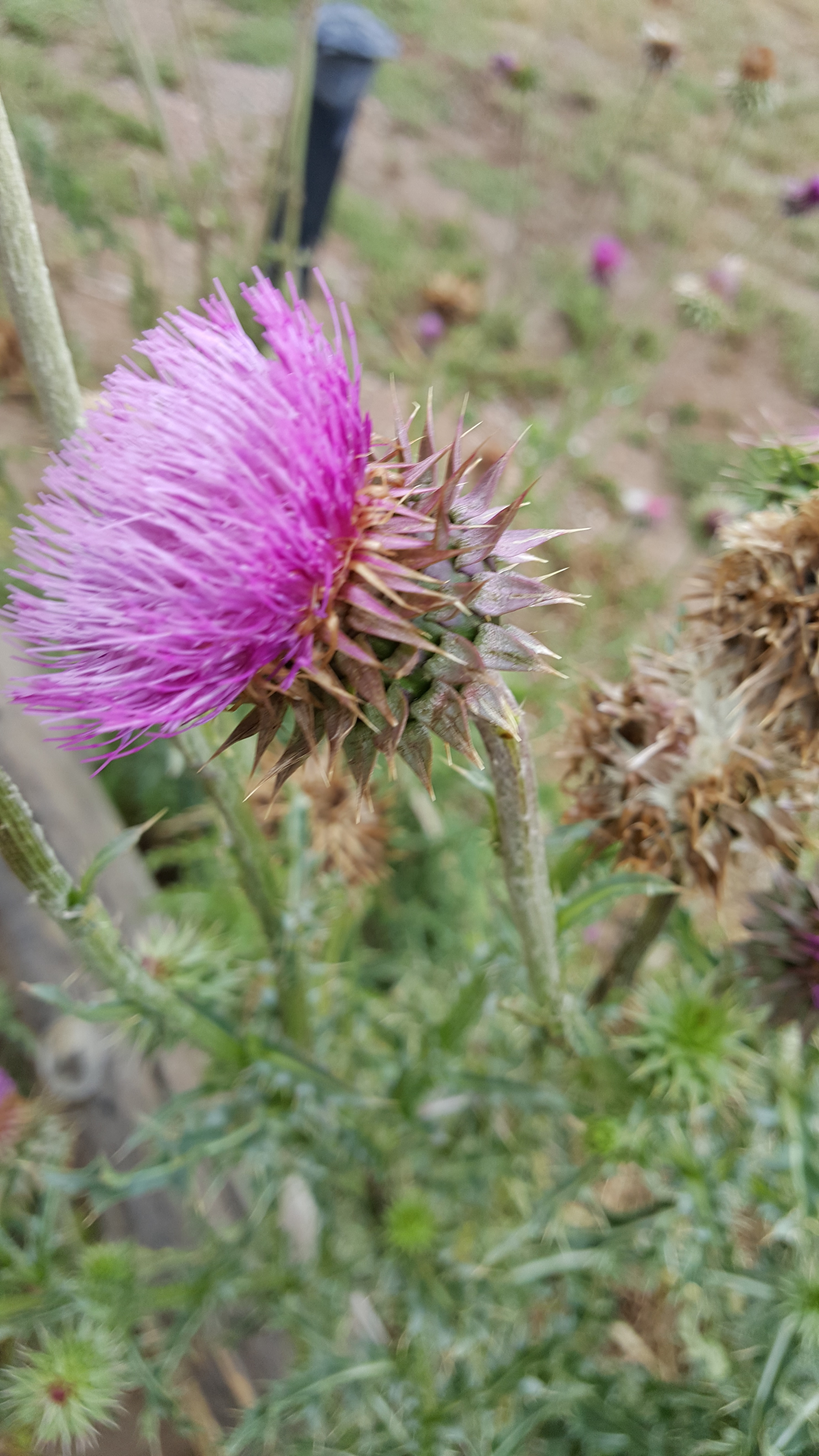
©2018 NMSU Board of Regents.
Individual photographers retain all rights to their images.
Partially funded by the
Western Sustainable
Agriculture Research and Education Program
(westernsare.org; 435.797.2257),
project EW15-023.
Programs and projects supported by Western SARE are
equally open to all people.